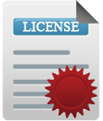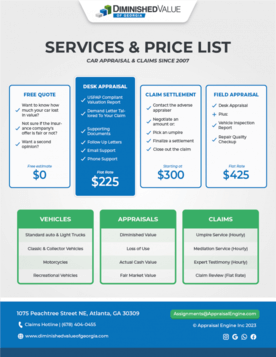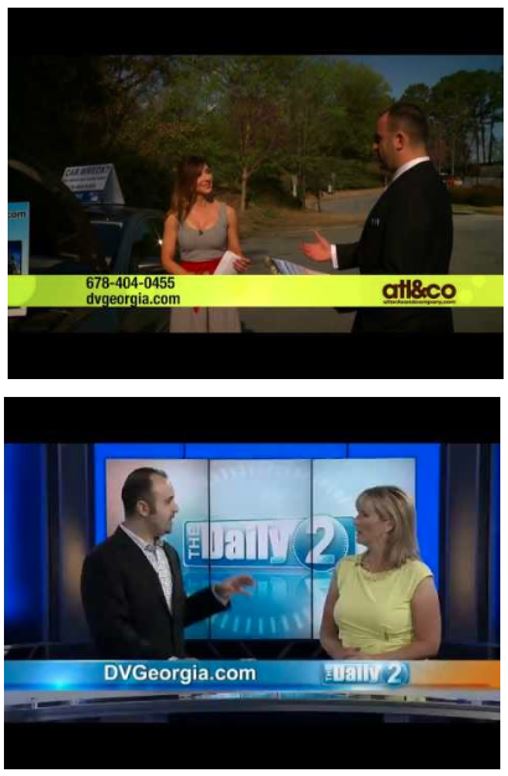 OCGA § 33-23-1
OCGA § 33-23-1
2015 Georgia Code
Title 33 – INSURANCE
Chapter 23 – LICENSING
Article 1 – AGENTS, AGENCIES, SUBAGENTS, COUNSELORS, AND ADJUSTERS
(a) As used in this article, the term:
(1) “Adjuster” means any individual who for a fee, commission, salary, or other compensation investigates, settles, or adjusts and reports to his or her employer or principal with respect to claims arising under insurance contracts on behalf of the insurer or the insured or a person who directly supervises or manages such individual. The term “adjuster” does not include:
(A) Individuals who adjust claims arising under contracts of life or marine insurance or annuities; or
(B) An agent or a salaried employee of an agent or a salaried employee of an insurer who adjusts or assists in adjusting losses under policies issued by such agent or insurer.
(2) “Agency” means a business entity that represents one or more insurers and is engaged in the business of selling, soliciting, or negotiating insurance. Agency also means a business entity insurance producer.
(3) “Agent” means an individual appointed or employed by an insurer who sells, solicits, or negotiates insurance. Agent also means an individual insurance producer.
(3.1) “Automated claims adjudication system” means a preprogrammed computer system designed for the collection, data entry, calculation, and final resolution of property insurance claims used only for portable electronics as defined in paragraph (1) of subsection (d) of Code Section 33-23-12 which:
(A) May only be utilized by a licensed independent adjuster, licensed agent, or supervised individuals operating pursuant to this paragraph;
(B) Shall comply with all claims payment requirements of the Georgia Insurance Code; and
(C) Shall be certified as compliant with this Code section by a licensed independent adjuster that is an officer of a business entity licensed under this chapter.
(4) “Business entity” means a corporation, association, partnership, sole proprietorship, limited liability company, limited liability partnership, or other legal entity.
(5) “Controlled business of a person” means property or casualty insurance for a person or a person’s spouse; for any relative by blood or marriage within the second degree of kinship as defined by paragraph (5) of Code Section 53-4-2; for a person’s employer or the firm of which a person is a member; for any officer, director, stockholder, or member of a person’s employer or of any firm of which a person is a partner; for any spouse of the officer, director, employer, stockholder, or member of a person’s firm; for a person’s ward or employee; or for any person or in regard to any property under a person’s control or supervision in any fiduciary capacity.
(6) “Counselor” means any individual who engages or advertises or holds himself or herself out as engaging in the business of counseling, advising, or rendering opinions as to the benefits promised under any contract of insurance issued or offered by any insurer or as to the terms, value, effect, advantages, or disadvantages under the contract of insurance, other than an actuary or consultant advising insurers. When receiving a fee, commission, or other compensation for this service, such individual shall not receive any compensation from any other source on or relating to the same transaction.
(7) “Home state” means Canada, the District of Columbia, and any state or territory of the United States in which an insurance producer or adjuster maintains his or her principal place of residence or principal place of business and is licensed to act as an insurance producer or adjuster.
(8) “Independent adjuster” means an adjuster representing the interest of the insurer who is not an employee of such insurer.
(9) “Insurance,” except where the type of insurance is specifically stated, means all kinds of insurance other than bail bonding by individual sureties.
(10) “Insurance producer” means a person required to be licensed under the laws of this state to sell, solicit, or negotiate insurance.
(10.1) “Limited subagent” means an individual licensed on behalf of a licensed agent pursuant to Code Section 33-23-12.
(11) “Negotiate” means the act of conferring directly with or offering advice directly to a purchaser or prospective purchaser of a particular contract of insurance concerning any of the substantive benefits, terms, or conditions of the contract, provided that the person engaged in that act either sells insurance or obtains insurance from insurers for purchasers.
(12) “Person” means an individual or business entity.
(13) “Public adjuster” means any person who solicits, advertises for or otherwise agrees to represent only a person who is insured under a policy covering fire, windstorm, water damage, and other physical damage to real and personal property other than vehicles licensed for the road, and any such representation shall be limited to the settlement of a claim or claims under the policy for damages to real and personal property, including related loss of income and living expense losses but excluding claims arising out of any motor vehicle accident, and who, for compensation on behalf of an insured:
(A) Acts or aids, solely in relation to first-party claims arising under insurance contracts that insure the real or personal property of the insured, in negotiating for, or effecting the settlement of, a claim for loss or damage covered by an insurance contract;
(B) Advertises for employment as a public adjuster of insurance claims or solicits business or represents himself or herself to the public as a public adjuster of first-party claims for losses or damages arising out of policies of insurance that insure real or personal property; or
(C) Directly or indirectly solicits business, investigates or adjusts losses, or advises an insured about first-party claims for losses or damages arising out of policies of insurance that insure real or personal property for another person engaged in the business of adjusting losses or damages covered by an insurance policy.
(14) “Sell” means to exchange a contract of insurance by any means, for money or its equivalent, on behalf of an insurance company.
(15) “Solicit” means attempting to sell insurance or asking or urging a person to apply for a particular kind of insurance from a particular company.
(16) “Subagent” means any licensed agent, except as provided in Code Section 33-23-12, who acts for or on behalf of another licensed agent in the selling of, solicitation of, or negotiation for an insurance contract or annuity contract and who has on file with the Commissioner a certificate of authority from each agent with whom the subagent places insurance. Subagent also means sub-producer. The term “subagent” shall not include:
(A) An agent who places insurance with or through another agent involving 12 or fewer policies or certificates of insurance in any one calendar year; or
(B) An agent who places surplus lines insurance with or through a surplus lines broker only with respect to such surplus lines insurance.
(17) “Surplus lines broker” means an individual licensed pursuant to Code Section 33-23-37.
(b) The definitions of agent, subagent, and counselor in subsection (a) of this Code section shall not be deemed to include:
(1) An attorney at law admitted to practice in this state when handling the collections of premiums or advising clients as to insurance as a function incidental to the practice of law or who adjusts losses that are incidental to the practice of his or her profession;
(2) Any representative of ocean marine insurers;
(3) Any representative of farmers’ mutual fire insurance companies as defined in Chapter 16 of this title;
(4) A salaried employee of a credit or character reporting firm or agency not engaged in the insurance business who may, however, report to an insurer;
(5) A person acting for or as a collection agency;
(6) A person who makes the salary deductions of premiums for employees or, under a group insurance plan, a person who serves the master policyholder of group insurance in administering the details of such insurance for the employees or debtors of the master policyholder or of a firm or corporation by which the person is employed and who does not receive insurance commissions for such service; provided, further, that an administration fee not exceeding 5 percent of the premiums collected paid by the insurer to the administration office shall not be construed to be an insurance commission;
(7) Persons exempted from licensure as provided in subsection (h) of Code Section 33-23-4; or
(8) An individual who collects claim information from, or furnishes claim information to, insureds or claimants, who conducts data entry, and who enters data into an automated claims adjudication system, provided that the individual is an employee of a licensed independent adjuster or its affiliate where no more than 25 such persons are under the supervision of one licensed independent adjustor or a licensed agent.
(c) In addition to paragraphs (2) through (8) of subsection (b) of this Code section, the definitions of public adjuster, independent adjuster, and adjuster in subsection (a) of this Code section shall not be deemed to include an attorney admitted to practice law in this state.

 OCGA § 33-23-1
OCGA § 33-23-1




